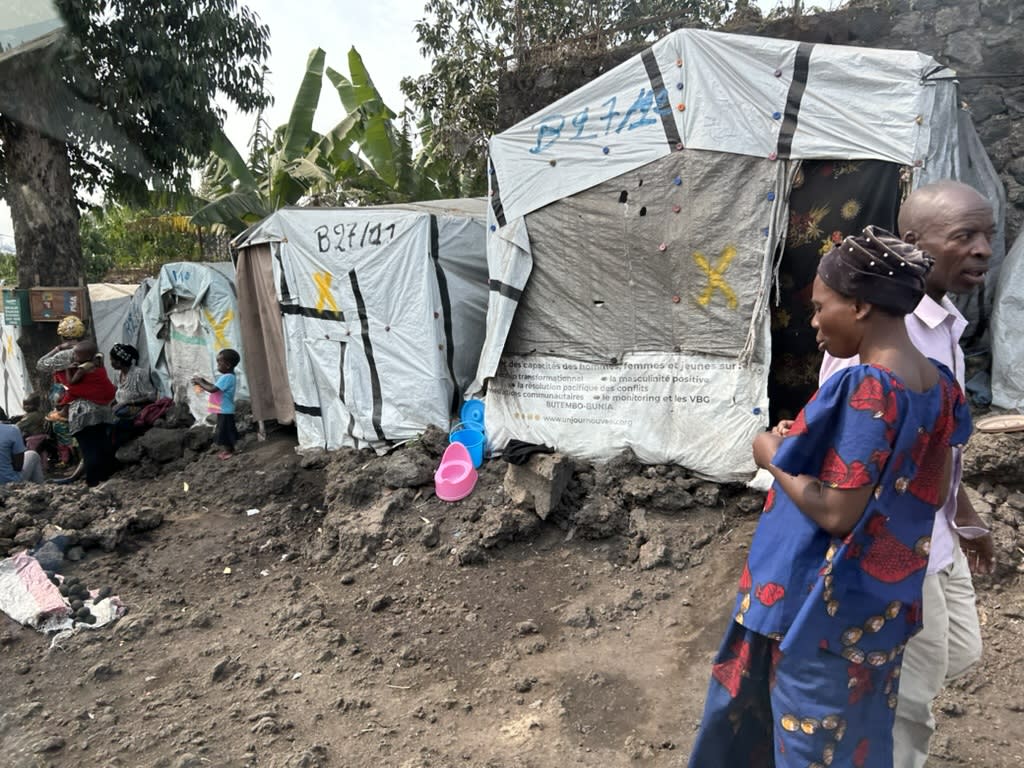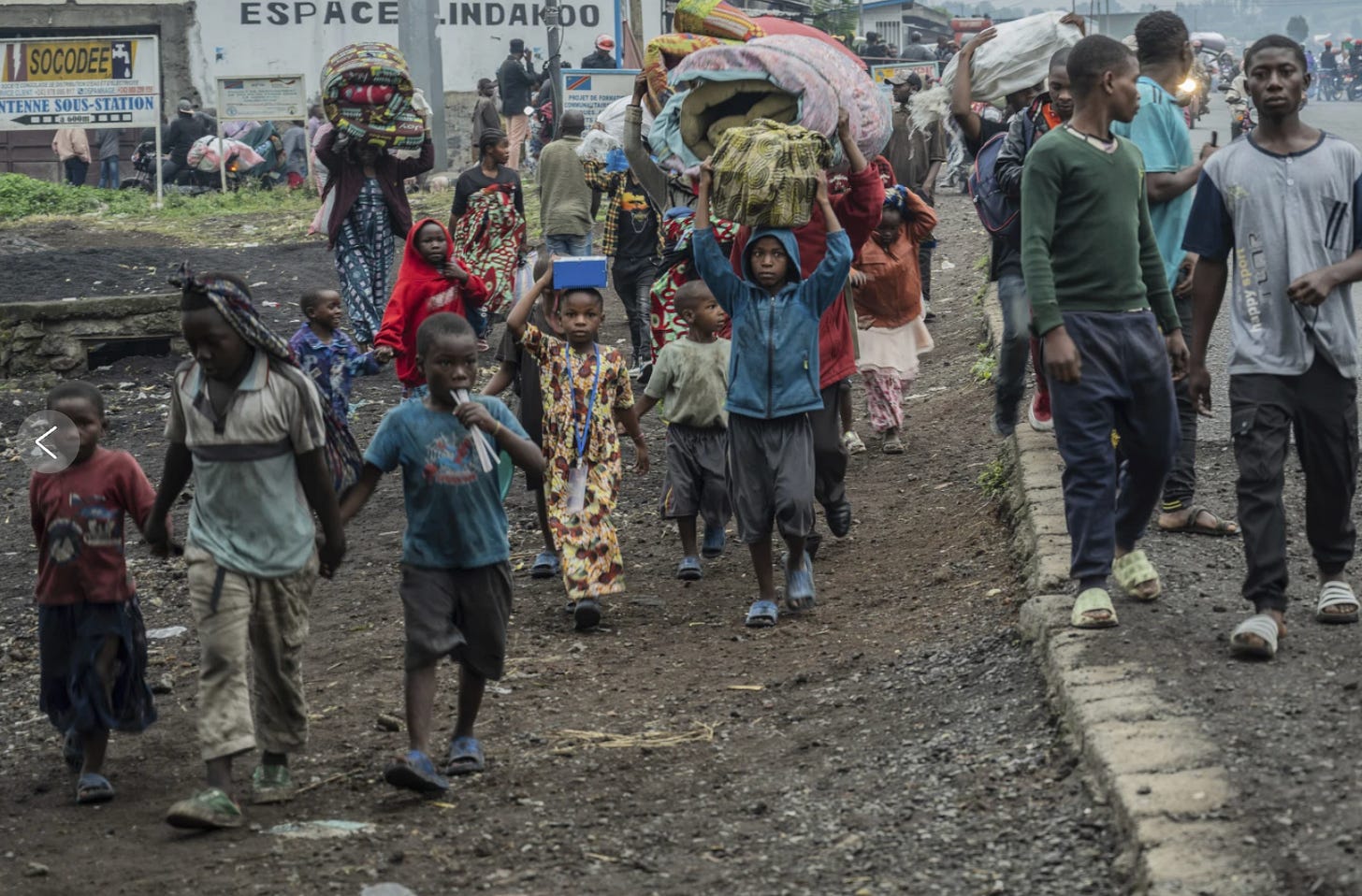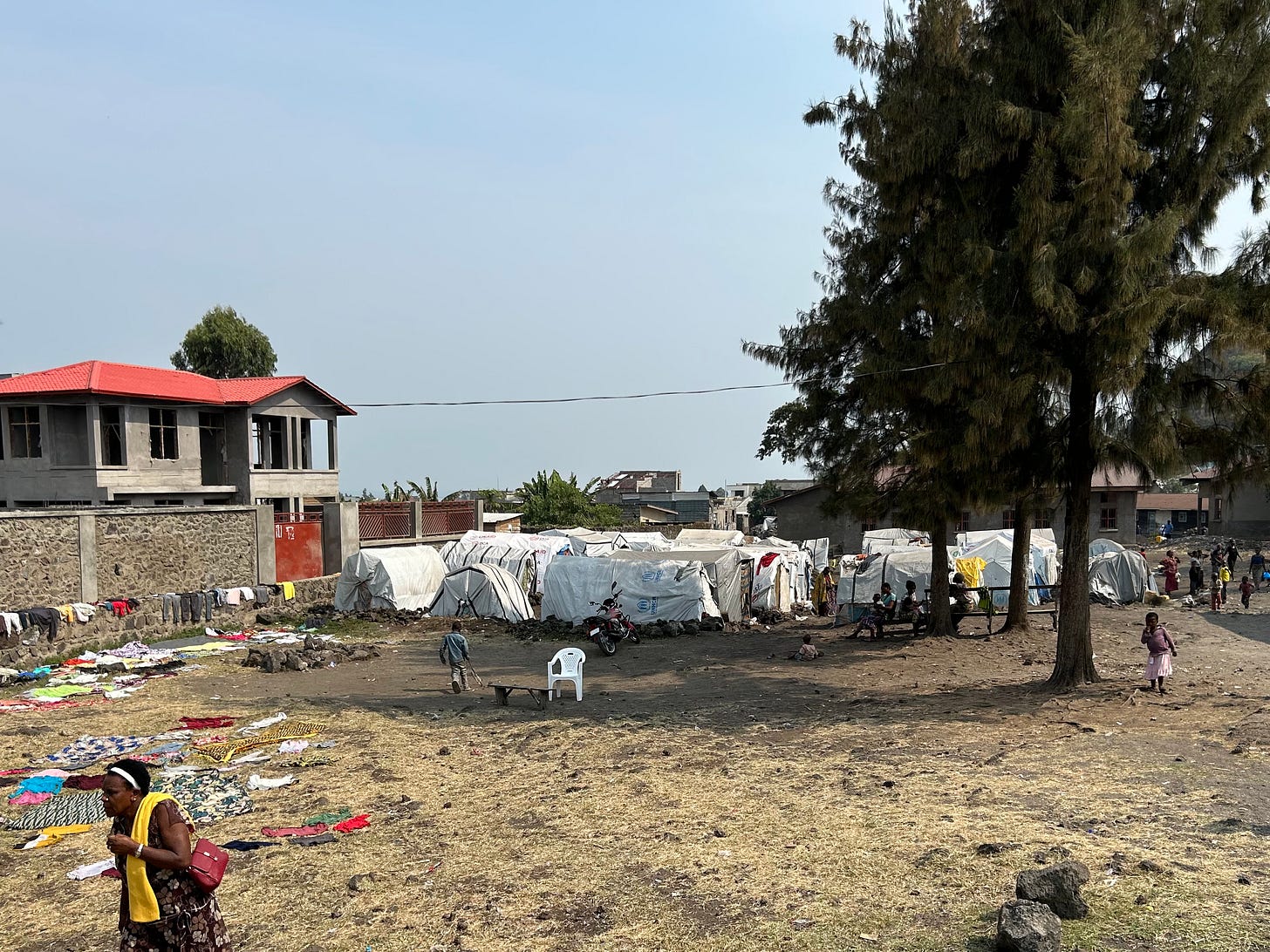Is Rwanda at war with Congo?
Rebels backed by Kigali government take largest city in eastern Congo
Over the past week I’ve reread some of Samuel Moffett's A History of Christianity in Asia, marveling again at the way God grew enthusiastic communities of believers in the first century. In Edessa, a center for early Christian mission and learning in Upper Mesopotamia, the new believers’ earliest writings reveal “a community of believers called to a covenant of war,” he writes, but war “not so much against the world as for the world against the darkness.”
Fighting in the Democratic Republic of Congo forced doctors at HEAL Africa Hospital to hide under beds as bombs dropped on Monday. The hospital came under fire as electricity, internet, and water, were cut off, further endangering patients. A Red Cross hospital in the city also reported coming under attack, as M23 rebels fighting DRC soldiers claimed to have taken the city, eastern Congo’s largest.
"The situation is confusing, complex and horrific. There is no safe place to go from Goma,” said Save the Children country director Greg Ramm. Save the Children’s office in Goma was hit by an explosion and the house of one of its employees struck by bullets as reports of civilian casualties proliferate.
As fighting between M23 rebels—backed by Rwanda—and Congolese soldiers with support of UN peacekeepers raged, another chapter in Congo’s 30-year saga of war unfolds. At least 13 UN peacekeepers and hundreds of civilians are reported killed since M23 reached Goma’s center on Friday.
Rwanda’s backing of the ethnic Tutsi rebels of M23 has been widely documented, including by the UN and United States. Over the past year, the armed group has seized critical areas and cities in South and North Kivu provinces of eastern Congo, forcing 400,000 Congolese to flee their homes in this month alone. M23 all the while was encroaching on Goma, the largest city in the region. Along with mass casualties are reports of gang rape and violence directed against children.
By late day today M23 appeared to have control of Goma’s airport, the last strategic base to be taken from Congolese army units. DRC leaders broke diplomatic relations with Rwanda and say its neighbor has declared war on Congo.
Intense fighting is having devastating impact on civilians—displacing over 400,000 people in January alone, adding to the estimated 6.7 million people already displaced in the DRC.
About 3 million people live in Goma, 1 million of them IDPs, or internally displaced people targeted by dozens of militias fighting for control of the area. M23 is the largest and most lethal of those groups, receiving support and armaments from Rwanda, which borders Congo’s east.
Last summer I spent time there, visiting camps, an orphanage and school, and the HEAL hospital, a facility founded by a Christian missonary and her Congolese doctor husband and specializing in fistula repair, one of two facilities in the region specializing in treating victims of sexual violence in the war zone.
At that time six months ago, thousands were arriving every day to spontaneous camps set on sharp lava rocks (the city sits in the shadow Mount Nyiragongo, an active volcano) with tarps for shelter and few supplies. Encampments for M23 rebels were visible in the hills above. At one church in the city, 60 IDP families showed up needing shelter, and were living in a bare lot shaded by tall trees.
To help the IDPs earn money, the church hosted a sewing workshop with support from a resident NGO. In a room of two dozen women seated at sewing machines, nearly all of them nodded yes when asked whether they had been raped.
Congo’s militias on all sides of the conflict have a long history of using rape and related violence as a weapon of war. Often sanctioned by commanders and tribal leaders, it’s another way to intimidate and control families and communities. It’s also the outworking of young men forced into military service with little pay, steeped in violence over long periods of time.

Congolese physician Denis Mukwege, who won the Nobel Peace Prize in 2018 for his work treating rape victims and advocating on their behalf, runs a hospital south of Goma in Bukavu. He joined a growing group of global leaders calling for an end to Rwanda’s role in Congo’s war, saying in an online post:
When will the community of states stop turning a blind eye to the Congolese tragedy and accepting or tolerating systemic violations of international law and human rights?! It's time to act, to stop empty condemnations and to adopt political and economic sanctions against the criminal regime in Kigali.
Follow on a live BBC scroll of news here.
The country, particularly in the east, has seen active fighting over decades, and M23 rebels overran Goma also in 2012. They were forced to back down in the face of advances by Congo’s army, and to sign a truce. They claim the peace agreement hasn’t been honored by the DRC-based government in Kinshasa, but others say Rwanda is using M23 as a front to gain access to eastern Congo’s rich mineral reserves.
Health workers and humanitarian groups are well versed in Congo’s war scene. But veterans I spoke to yesterday say they face additional hurdles in this crisis due to actions by the U.S. State Department.
Last Friday Secretary of State Marco Rubio issued a blanket stop order of all U.S. foreign aid. The surprise move immediately “paused all U.S. foreign assistance funded by or through the State Department and U.S. Agency for International Development (USAID) for review,” the State Department said in a Jan. 26 statement. The directive said the move is “a moral imperative” with a 90-day hold to ensure programs “are efficient and consistent with U.S. foreign policy under the America First agenda.”
The hold by the new Trump administration came without warning at the end of a tumultuous week of changes in U.S. diplomatic policy. It left non-governmental organizations unsure how to continue critical services. While emergency food aid and U.S. funding for Israel and Egypt were exempt, day-to-day programs funded by USAID, usually on multi-year contracts, also provide essential services for dependent populations involving healthcare, water treatment, education, and other basic services. These were plunged into critical limbo, said InterAction, an alliance of international nongovernmental organizations:
The freeze “interrupts critical life-saving work including clean water to infants, basic education for kids, ending the trafficking of girls, and providing medications to children and others suffering from disease. It stops assistance in countries critical to U.S. interests, including Taiwan, Syria, and Pakistan.”
Veteran aid workers in Africa, who asked to speak on background because they fear reprisals, told me USAID, an agency of the State Department, sent individual work orders to NGOs. Some sounded routine, asking for accounting records and other paperwork, while others threatened severance and penalties if immediate work stoppages weren’t put in place.
Longstanding programs like the President’s Emergency Plan for AIDS Relief (PEPFAR) and the President’s Malaria Initiative (PMI) depend on an uninterrupted supply of medicines, pointed out lawmakers with oversight of the State Department in a letter to Rubio. “Congress has appropriated and cleared these funds for use, and it is our constitutional duty to make sure these funds are spent as directed.”
The order appeared to violate memorandums of understanding that NGOs must routinely sign with federal agencies in order to receive funding, and add to the challenges of operating in places like Congo.
Other news:
New York city has become the most linguistically diverse metropolis in human history, say linguists, and churches are key to preserving these myriad dialects. The Book of Acts seemed to be onto something:
Christians speak 82 percent of the world’s languages as mother tongues, according to Gordon-Conwell Theological Seminary’s Todd Johnson, making Christianity by far the most linguistically diverse religion in the world. And that diversity is reflected in New York City’s churches.
China: The growth of the church in China may be coming to an end, say analysts with the Pew Research Center. Scholars once believed China was on track to have a Christian majority by midcentury. But demographic changes, the Covid pandemic, and regime crackdown on large house church networks all had a dampening effect. And yet, over and over again, China’s religious zeal, spirituality, and readiness to outmaneuver an authoritarian regime has been undersold. The work of veteran China watcher and journalist Ian Johnson and his book, The Souls of China, is a good read on the subject.




